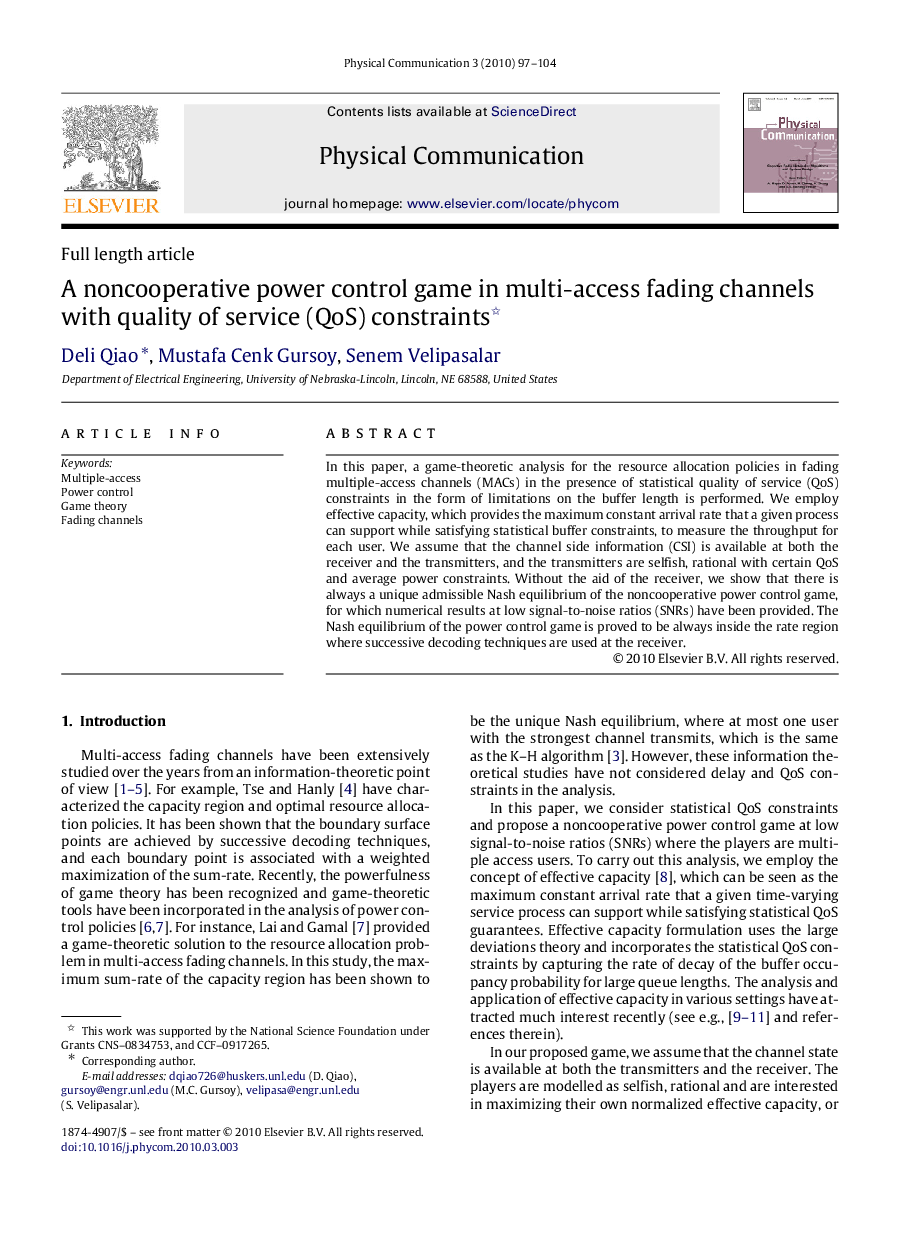| Article ID | Journal | Published Year | Pages | File Type |
|---|---|---|---|---|
| 465206 | Physical Communication | 2010 | 8 Pages |
In this paper, a game-theoretic analysis for the resource allocation policies in fading multiple-access channels (MACs) in the presence of statistical quality of service (QoS) constraints in the form of limitations on the buffer length is performed. We employ effective capacity, which provides the maximum constant arrival rate that a given process can support while satisfying statistical buffer constraints, to measure the throughput for each user. We assume that the channel side information (CSI) is available at both the receiver and the transmitters, and the transmitters are selfish, rational with certain QoS and average power constraints. Without the aid of the receiver, we show that there is always a unique admissible Nash equilibrium of the noncooperative power control game, for which numerical results at low signal-to-noise ratios (SNRs) have been provided. The Nash equilibrium of the power control game is proved to be always inside the rate region where successive decoding techniques are used at the receiver.
